We bring to you these top weight loss diets so that you can have a clear picture of what you can actually follow to stay healthy and sustainably.
Each one of us is beautiful the way we are! And we do what we need to do to stay healthy and confident in the body nature gave us.
Regardless, being overweight is frequently an invitation to numerous cardiac illnesses. Our bodies must be fit, not because it is necessary to meet society’s aesthetic standards. But because that is what health demands.
This post is for you to understand how you can keep your body healthy by regulating your diet. The basic way to lose weight is to start eating right. Easy, isn’t it?
But, with so many diet programmes and weight reduction cures available, it is quite possible to be confused about what will actually work.
Dieting does not imply starving yourself. It involves monitoring what you eat and changing it to meet your body’s demands.
What is the right way to follow weight loss diets?
- Set realistic goals.
- Make gradual changes.
- Find a support system that can help you stick to your goals.
- Be patient
- Do not start blindly following what is working well for others.
Here are some different kinds of diets that are considered to support weight loss:
1. Intermittent fasting
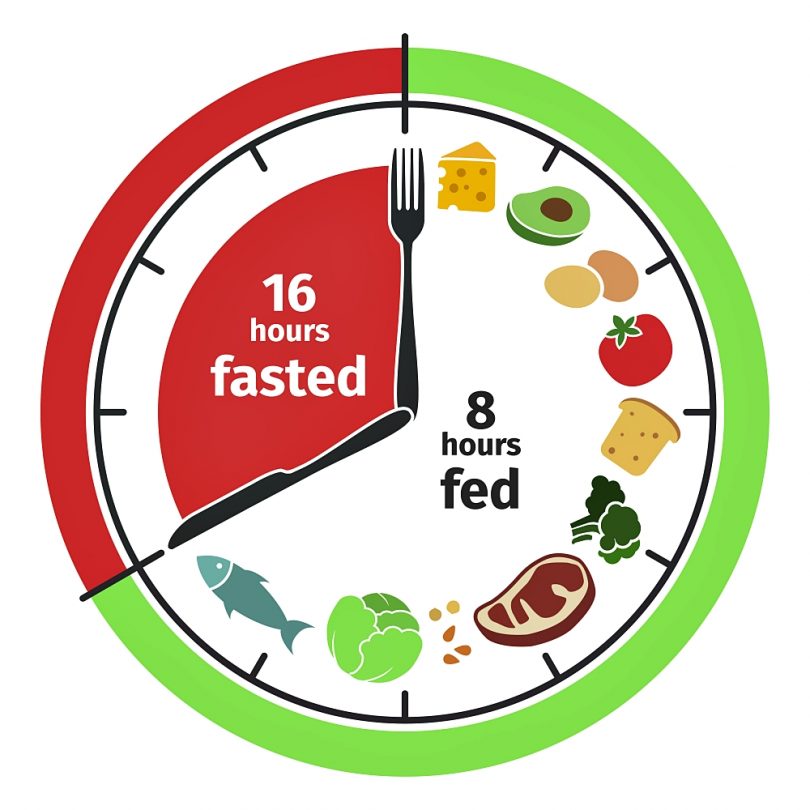
This is a diet pattern that rotates between periods of eating followed by fasting.
To understand simply, say you finish your dinner by 8 p.m. Now the next meal you will take will be at 8 a.m. or later. This restricts your time to eat and, hence, automatically reduces calorie intake.
There are many different ways to do intermittent fasting, but the most common methods are:
16/8 Intermittent fasting:
This method involves fasting for 16 hours and eating during an 8-hour window. Suggested: eat between 11 a.m. and 7 p.m. and fast for the rest of the day.
5:2 Intermittent fasting:
This method involves eating normally for 5 days of the week and then fasting for 2 days. On fasting days, you typically consume no more than 500 calories.
Eat-stop-eat:
This method involves fasting for 24 hours once or twice a week. For example, you might eat dinner on Monday night and then not eat again until dinner on Tuesday night.
Benefits from Intermittent Fasting
Apart from weight loss, other potential benefits include weight loss, improved insulin sensitivity, improved brain health, boosting energy levels, and reduced inflammation.
It is important to remember to not binge on unhealthy food during your eating window, try including fruits, vegetables, and proteins.
Tips:
- Start slowly.
- Listen to your body.
- Eat healthy foods.
- Talk to your doctor.
- Do not force yourself due to social pressure.
2. Plant-based diet
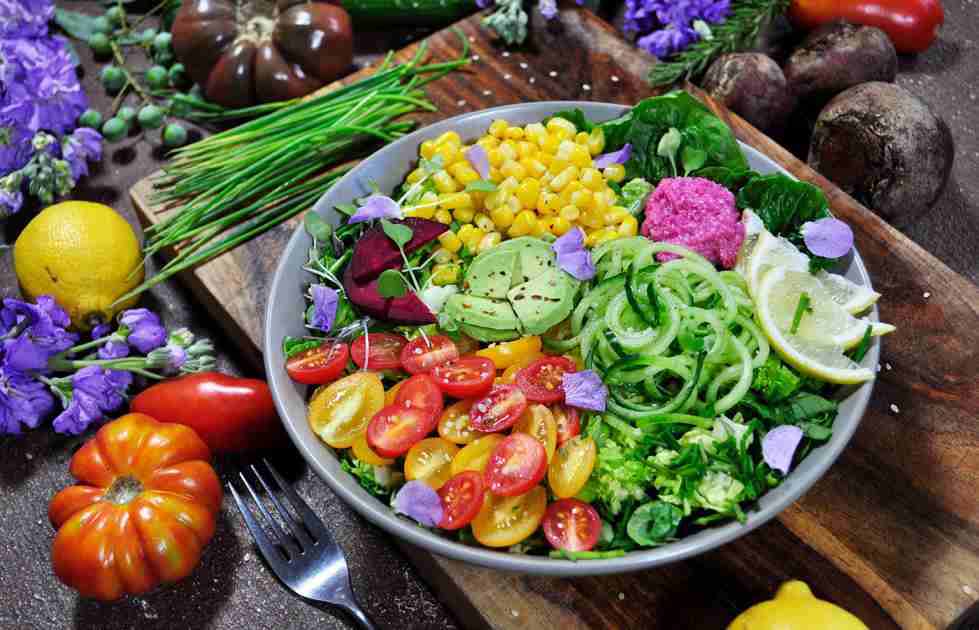
A plant-based diet is more of a lifestyle change than a diet. It is not as strict as a vegan diet but lies somewhere along the same lines. Mainly, it encourages people to add more vegetables to their daily routine.
It successfully delivers antioxidants, fibre, and other fats and proteins that are expected in a normal diet. It restricts eating many foods that are high in calories and thus results in weight loss.
This diet includes fruits, vegetables, legumes, nuts, and soy products. This diet also reduces the risk of chronic diseases, heart-related ailments, and diabetes.
Additional Tips for a Plant-based diet
- Don’t be afraid to experiment.
- Variety is key.
- Cook with herbs and spices.
- Make it convenient.
| Include | Restrict |
| Fruits | Meat, poultry, fish, eggs, dairy |
| Vegetables | Processed foods, sugary drinks, refined grains |
| Whole grains | Added sugars |
| Legumes | Saturated and trans fats |
| Nuts and seeds | Sodium |
| Healthy fats | Alcohol |
3. Low-fat diet
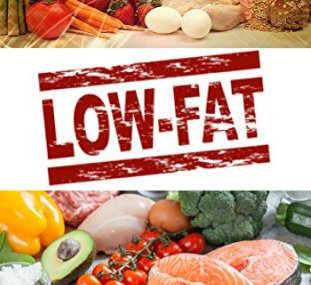
A low-fat diet means restricting your fat intake strictly to 25%. Further, some ultra-low-fat diets limit fat consumption to even 10%.
However, it is important to note that not all fats are created equal. Some fats, such as saturated and trans fats, are unhealthy and should be limited or avoided altogether.
Other fats, such as monounsaturated and polyunsaturated fats, are healthy and can actually be beneficial for your health.
All your grocery shopping must be done only after reading nutrition labels if you want to pursue this diet.
Fat delivers twice the number of calories that proteins and carbs do. For this reason, it is important to restrict them.
If you want to pursue a low-fat diet for a long time, then you must contact an experienced nutritionist, because this diet may have drawbacks in the long term as it hinders the absorption of fat-soluble vitamins.
Tips to follow in a low-fat diet:
- Read food labels carefully.
- Choose lean protein sources.
- Eat plenty of fruits, vegetables, and whole grains.
- Cook with healthy oils.
- Avoid processed foods.
Potential Benefits:
- Weight loss.
- Improved cholesterol levels.
- Reduced risk of heart disease.
- Improved overall health.
| Include | Restrict |
| Fruits | Saturated fats |
| Vegetables | Trans fats |
| Whole grains | Processed foods |
| Lean protein | Unhealthy oils |
| Healthy fats |
4. Keto diet
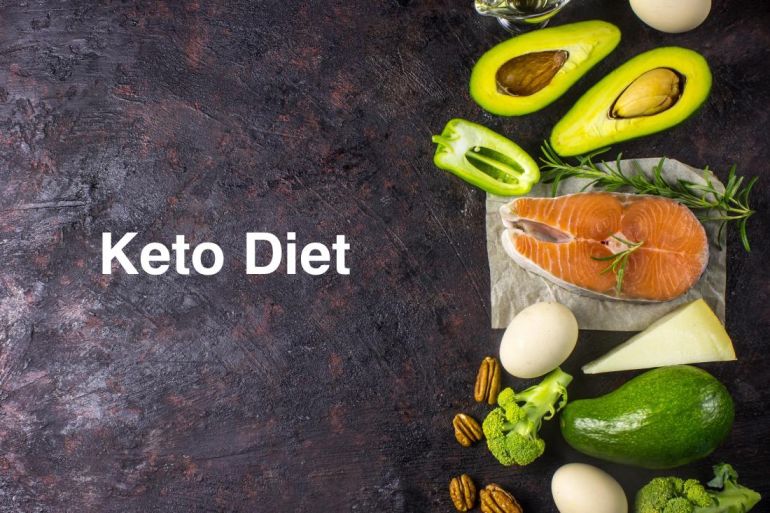
The aim of this diet is to utilise the already existing fats in the body as a source of energy instead of stored glucose or blood sugar. You have to get more calories from proteins and fats and less from carbohydrates.
Generally, it is not advisable to follow the keto diet if you have type 1 diabetes. Talk to your doctor to find out if it is safe for you.
In the first 3–6 months of starting this diet, you will be able to see the difference in your weight. It pushes your body to produce ketones from fat and puts your body in a state of ketosis, where it starts burning fat instead of stored glucose.
Alcohol must be avoided if you are on a keto diet because it throws the body out of ketosis. Keto diet is also known to reduce epileptic seizures and slow the progression of Alzheimer’s.
Include Restrict Meat Grains Fish Legumes Eggs Fruit Non-starchy vegetables Dairy Healthy fats: nuts and seeds Added sugars Processed foods Starchy vegetables
Read more about Keto Diet HERE
5. DASH Diet
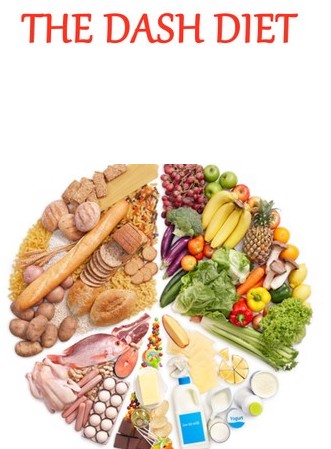
Dietary Approaches to Stop Hypertension (DASH), one of the extremely popular weight loss diets in India, is a diet plan that aims to treat or control high blood pressure, also called hypertension.
This was developed so that individuals can regulate their blood pressure without the use of medication.
This diet calls for reducing the level of sodium in your diet by consuming foods that are rich in magnesium, potassium, and calcium.
It focuses on low-fat dairy products, vegetables, fruits, and a moderate intake of whole grains, poultry, etc. The DASH diet does not only help to reduce blood pressure levels but also reduces the risk of breast and colorectal cancer.
Key points for the DASH diet:
- Eat plenty of fruits and vegetables.
- Include whole grains in your diet.
- Choose lean protein sources.
- Limit your sodium intake.
| Include | Restrict |
| Fruits | Processed meats, sugary drinks, red meat |
| Vegetables | Added sugars, saturated and trans fats |
| Whole grains | Sodium |
| Legumes | Alcohol |
| Nuts and seeds | Caffeine |
| Fish and poultry | |
| Low-fat or fat-free dairy |
6. Zone diet
The diet is based on the idea that eating a specific ratio of macronutrients can help to improve insulin sensitivity and reduce inflammation.
This diet directs people to have 30% proteins, 30% fat and 40% carbs in every diet. This means that you should aim to eat:
- Protein: 1 gram per pound of body weight
- Carbohydrates: 4 grams per kilogram of body weight
- Fat: 0.7 grams per kilogram of body weight
To be precise, if you weigh 70 kilograms, you would aim to eat 31.7 grams of protein, 280 grams of carbohydrates, and 49 grams of fat each day.
However, you must understand the fact that the results of this diet may not show up on the weighing scale, but your old jeans will definitely start to fit you. Because it focuses more on body fat loss (inches) than weight loss.
The Zone diet also encourages you to eat frequent meals and snacks throughout the day.
It promises to balance nutrients and thereby help you to reduce fat. Each meal or snack under this diet is carefully planned such that your body receives a small amount of protein along with carbohydrates.
Foods typically allowed Foods typically restricted Lean protein sources: chicken, fish, tofu, beans, lentils High-glycemic fruits: bananas, grapes, mangoes Healthy fats: olive oil, avocado, nuts, seeds Starchy vegetables: potatoes, corn, carrots Low-glycemic fruits: berries, apples, pears Refined carbohydrates: white bread, white rice, pasta Low-starch vegetables: leafy greens, broccoli, cauliflower Added sugars Saturated and trans fats
Potential benefits of zone diet:
- Weight loss
- Improved insulin sensitivity
- Reduced inflammation
- Increased energy levels
- Improved mental clarity
However, it is important to note that none of the weight loss diets mentioned above are magic bullets. It is still important to eat healthy foods and exercise regularly if you want to see results.
Make way to healthy food, and say help to a healthier you!









